Regular training will take it’s toll on your body if you don’t recover properly. The benefit you gain from training (endurance, strength and speed) can be quickly lost if you don’t refuel your muscles immediately after a session. The quicker you can recover after a session, the better you will train in your next session. The reason the top swimmers can train 10 times a week doing 6km a session is because they’re taking the right supplements for a speedy recovery.

Before training (optional):
1 serve of Protein Powder
1 serve of Amino Acid powder
Taking one serve of protein powder 30 minutes prior to a training session will help feed your muscles. Protein powder isn’t just for body builders. It’s used by athletes across many sports to assist in getting the most from a workout and to aid in recovery.
2.5 grams of amino acid powder will also help feed and aid your muscles during your workout. Combine the amino acid powder with the protein powder.
Taking these supplements before training may help you train at a higher intensity for longer. Not all athletes find it easy to take a protein powder prior to a workout because it can be hard to keep down. I recommend mixing it with water instead of milk to help with this.
During training:
1 serve of Amino Acid powder
If you’ve taken an amino acid powder prior to training only take 2.5 grams halfway trough your session, otherwise mix 5 grams of powder with water to drink during your session. This will help refuel your muscles for increased energy levels during the session. An alternative to amino acids is an electrolyte drink such as Gatorade, Powderade or even cordial. Although if the drink is too sugary it can increase the amount of lactic acid you produce, giving you that sickly feeling when you train hard. It can be worthwhile watering down these electrolyte drinks to avoid this if you choose not to use amino acids.
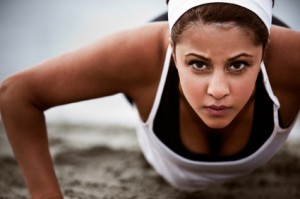
1 serve of Protein powder
1 serve of L-Glutamine powder
1 serve of L-Leucine powder
Immediately after a training session mix the three powders together into a shaker bottle and combine with water. We’ve mentioned protein powder assists in muscle recovery and growth, so what do the other two do? L-Glutamine is an amino acid which shortens the healing time of muscles and is particularly useful after high-intensity training. L-Leucine is also an amino acid which helps make use of the protein you’re ingesting.
Results:
For the past 5 weeks I have been taking one serve of protein and L-Glutamine powder immediately after training. Because I’ve also gone from training once per week to 7 times per week, it’s difficult to calculate the direct results the supplements have had. I’ve increased my strength and aerobic capacity significantly in the last 5 weeks.
I can say that I’ve been able to back up sessions well, training twice per day on occasions without feeling too ‘sluggish’ in the afternoon session. I believe this is because of the supplements, getting sufficient rest and eating protein rich foods (eggs, lentils, fish, etc).
After to speaking to Sam Ashby (World Championship semi-finalist in 2011) he suggested adding amino acids and leucine to my supplement intake. I’m yet to add Amino Acid powder and L-Leucine powder to my supplement intake, but I have ordered some and will be taking it for the next couple of weeks once it arrives.
Where to buy:
I have bought from BodyBuilding.com before because they stock each of the products I personally use, they have great customer support and ship internationally.
Recommendations:
If you a training regularly at an intensity where you feel your muscles and energy are depleted at the end of your sessions, add supplements to your training program to aid in recovery. You will feel better for it and will get more out of your training. Swimmers years 12 and over should consider adding supplements to their diet.
The quality of my training has increased since using supplements. This includes swimming faster times, having more endurance in sessions and swimming with better technique due to an increase in strength.
This is general advice and is based on my own experience. Please consult a doctor or nutritionist before using any supplements.
I recommend the following supplements:
Optimum Platinum Hyrdowhey – TurboChocolate Flavour (Protein Powder)
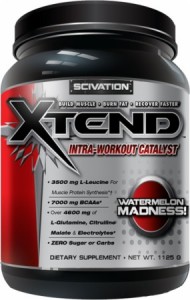
Test out some of these supplements for yourself and see if you feel a difference in your strength and energy levels. Leave a comment below and share you’re supplement experiences and recommendations. What have you tried?

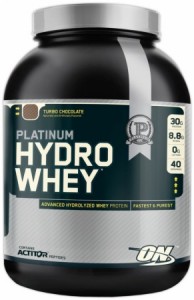
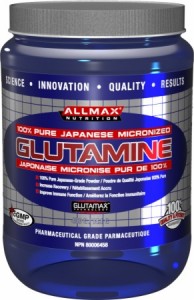
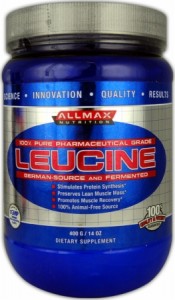
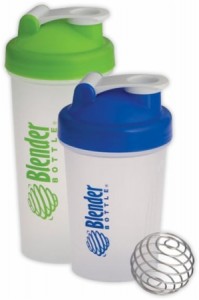
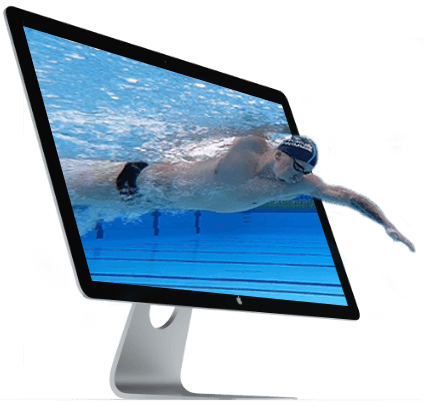
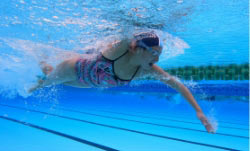
Thanks for this information – I’m just an ordinary middle aged swimmer who trains towards small events. But when I was training for an English CHannel Relay Team swim this year I could have used this info as I was constantly tired during my working day and never recovered from the training sessions. All went well wih the crossing though. 🙂
Congrats on making the channel swim with your team. It’s no easy feat!
Hi Berndon, Yuo are doing a great job and helping many swimmers and coaches like myself all over the world; Please keep up the good work. Coach Abdul
This site: http://www.ergo-log.com/ has oodles of info on these topics– short digests of the latest clinical studies.
Anyway, try not just leucine, but all three branch-chain aminos; they are all essential, they keep me from getting sore afterwards, and they have lots of other beneficial effects.
Other things that give you energy and can really help with workouts: CoQ10, alpha-lipoic acid, acytl-L-carnitine, and of course B vitamins. All help with energy production, and work wonders at out-pacing the competition. Best of all, plain-old grocery stores sell these, you don’t have to go to some vitamin boutique.
I tried creatine, but if you mix coffee and creatine, then it has no effect (appearently, this is “well known”) No wonder it didn’t work for me: I’m a coffee addict.
On race day, chocolate milk is an excellent source of protein, fat, sugar, after the race. Top-notch recovery food. Yes, there are clinical studies that confirm this; last I looked, the scientists/doctors din’t know of *any* drink that was more effective than chocolate milk, for post-recovery.
p.s. the reason gatorade has sugar in it is because during workouts, your gut doesn’t have enough oomph to absorb the salts: your gut is starving, because you muscles are using all the nutrients. So adding sugar helps feed the gut, so that it can actually absorb the electrolytes, instead of having them slosh around in a jelly-belly.
I really like Xtend. I think it has made a difference in my training and recovery. I was using a pre and a post shake before but using the Xtend during the workout has made a difference.
hello there,
I am 45 and learnt swimming recently and I can negotiate 2-3laps of free style safely without break.I am not into anything competitive and have no plans as such.Its just for fitness,I swim 2-3 times a week and would like to improve stamina for increasing the no. of laps, wud you suggest supplements or just improvement in technique ?
TKS,
R.S
India
Thanks for the information , my son is 13 years old and swims 5 hours at day .
I would like to know if you recomend to take proteins and amino acids?
@Linas Thanks for all the great information and the link to the website, I’ll read through those articles. I also tried creatine but I felt very heavy in the water because of it.
@Rupinder – I would recommend working on your technique and then fitness, and once you’re swimming a bit more look at supplements.
@Roberto – Yes it could help his recovery if he is training that much.
Hmmm. Interesting article for increasing endurance and speed using supplements. Unfortunately, by increasing your normal workout to 7 times/week, I would think it is difficult to determine what helped you improve. I personally think that increasing the workouts had better improve your fitness. Once a week will barely maintain, 2 time/week will improve, 3 or more…
wow this is some of the best information iv ever been given..im 14 years old and swim 3.5 hours a day and this helps a lot!
thanks! very helpful, i actually was feeling sluggish in my second sesion, .. recovery is important since im not a professional just a committed swimer who needs a job to afford life and my pasion for swimming.. this requires a lot of energy, but this made me feel more confident about it 🙂
Thanks for the information. In fact the doctor says that you get the protein from the food. But I feel that is not sufficient. I go swimming 6 days a week. But feel quite tired, so I reduce timing from 70 minute to 45 minutes. I shall try to take supplement and protein and amino acid and see the result.
You need extra protein if you’re training heavily. You also intake it quicker from a protein shake straight after training than if you had to eat a steak for example.
Thank for this important information…a helpfull site .. a wise swimmer 🙂
this sounds correct.
are any of these substances on the USA swimming band list?
@ Humble Athlete – I don’t believe so.
Thanks for sharing, I’ll try and see how it works. I’ve tried recently a new product called ASEA, that is the first redox signalling molecules integrator. Looks to me it has better features in terms of recovery time than any other integrator I’ve ever used. Anyway I started swimming with a master team only 2 years ago, I’m 44, and my level is still pretty weak (34.3 sec for 50m freestyle). I train just 5-6 times a week for about 1h covering on the average 2.5 km each time. Nonetheless I’ve heard of several athletes at professional level having achieved great results.
I’ve been following you since the beginning of the year. I’ve also been using several of your techniques. Thanks for the input. I plan to blow my swim record out of the water at this years Iron Girl. Cheers, Viva Las Vegas
Background – Electrical engineer, college swimmer, now in mid 60’s, mainly interested in keeping fit enough to enjoy mountain and road cycling and mountain climbing and keeping up with 9 year old daughter. The most instrumented athletes for endurance fitness are world class cyclists. Suggest reading the Time-Crunched Cyclist by Chris Carmichael, Lance Armstrong’s coach. Key information is how different fuel sources burn in the body including what’s needed and when to keep body running, rather than running down. If you push your body at 2/3 of it’s ability to deliver oxygen, you can sustain your exercise indefinitely on fat, which means if you are overweight like I was, you don’t need supplemental food for fuel. AND – the process you use to burn fat does not generate lactic acid in the muscles. So you avoid the soreness that causes you do avoid workouts. I experienced this on bike rides – could ride “forever” without anything supplemental other than water. As my body mass index dropped under 20, my power to weight ratio was climbing and I was riding faster and wanted to push into anaerobic levels for fun. But I could not do this without either extended rest to restore cell glycogen or making sure I was eating carbohydrate fuel shortly before workouts. My before workout food while focusing on weight loss was small amounts of smoked salmon and walnuts – protein, fiber, omega fats, minerals. This also provided the before/after protein and omega three and minerals required for cell “reconstruction and maintenance”. When I transitioned toward performance workouts, I had to add whole grain bread and/or fruit to get the energy boost for performance. The carbs burn by a different process and allow you to push into higher levels of oxygen consumption, which do generate lactic acid. Chis had specific recommendations for nutrition to make sure that you had what you needed when you need it. Another great reference was Mark Allen (6 time iron man winner) story in Outside magazine from February 1997 about training levels and nutrition. Both these references suggest eating the right food at the right time. Whole foods may also provide a broader range of needed nutrients than specialty supplements. And key in Cris’s book was not overeating at meals. His athletes eat meals for maintenance and add foods to target the specific caloric and other nutrients needed for the specific workout content – without modifying basic body maintenance meals.
My son is 10 years old swimmer,he is training 2 hours per day and 5 days a weak.but he feels very tired.do you think this can be good for a child ?
my to hellpe this producat use to india i parcasing to india
please addras to india mp indore
what do you recommend for children ages 9-12 years old, how much protein powder and other minerals shall they take after training? thanks
what do you recommend for children ages 9-12 years old, how much protein powder and amino acids shall they take after and before training? thanks
Hi Roy,
I’m not sure about children that young. I would check with a nutritionist or read the label.
That’s a bit young to start on supplements. I wouldn’t recommend it until they’re about 16.